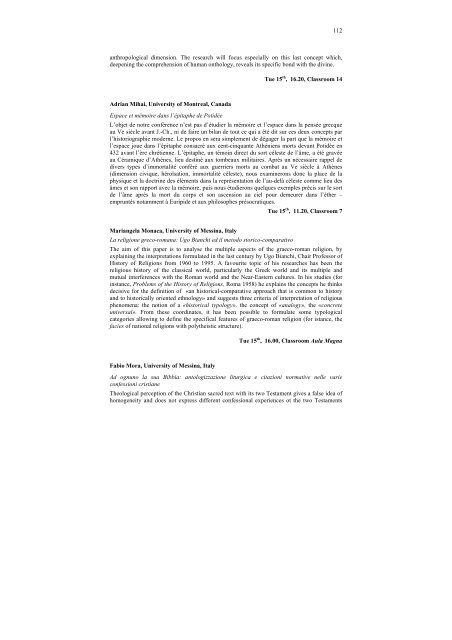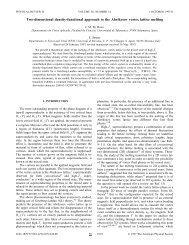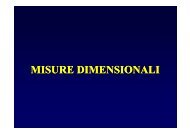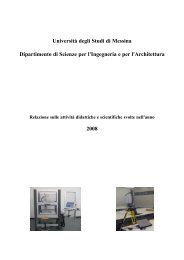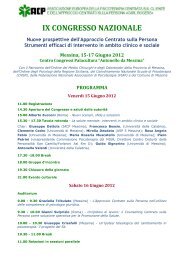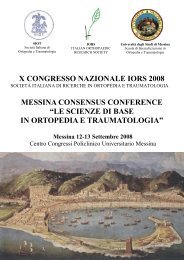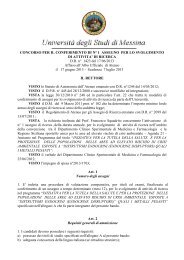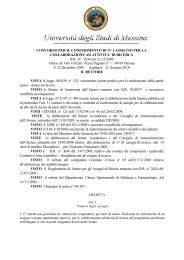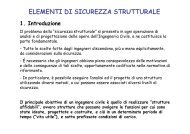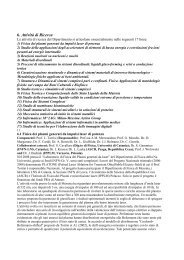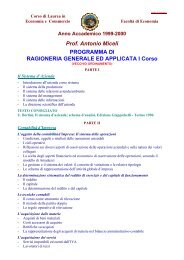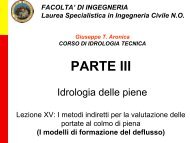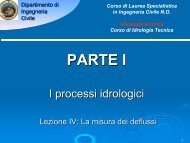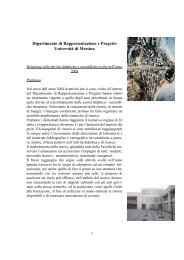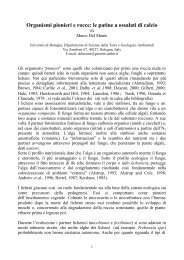PROGRAMME AND ABSTRACTS - Università degli Studi di Messina
PROGRAMME AND ABSTRACTS - Università degli Studi di Messina
PROGRAMME AND ABSTRACTS - Università degli Studi di Messina
Create successful ePaper yourself
Turn your PDF publications into a flip-book with our unique Google optimized e-Paper software.
anthropological <strong>di</strong>mension. The research will focus especially on this last concept which,<br />
deepening the comprehension of human onthology, reveals its specific bond with the <strong>di</strong>vine.<br />
Adrian Mihai, University of Montreal, Canada<br />
Espace et mémoire dans l’épitaphe de Potidée<br />
112<br />
Tue 15 th , 16.20, Classroom 14<br />
L’objet de notre conférence n’est pas d’étu<strong>di</strong>er la mémoire et l’espace dans la pensée grecque<br />
au Ve siècle avant J.-Ch., ni de faire un bilan de tout ce qui a été <strong>di</strong>t sur ces deux concepts par<br />
l’historiographie moderne. Le propos en sera simplement de dégager la part que la mémoire et<br />
l’espace joue dans l’épitaphe consacré aux cent-cinquante Athéniens morts devant Potidée en<br />
432 avant l’ère chrétienne. L’épitaphe, un témoin <strong>di</strong>rect du sort céleste de l’âme, a été gravée<br />
au Céramique d’Athènes, lieu destiné aux tombeaux militaires. Après un nécessaire rappel de<br />
<strong>di</strong>vers types d’immortalité conféré aux guerriers morts au combat au Ve siècle à Athènes<br />
(<strong>di</strong>mension civique, héroïsation, immortalité céleste), nous examinerons donc la place de la<br />
physique et la doctrine des éléments dans la représentation de l’au-delà céleste comme lieu des<br />
âmes et son rapport avec la mémoire, puis nous étu<strong>di</strong>erons quelques exemples précis sur le sort<br />
de l’âme après la mort du corps et son ascension au ciel pour demeurer dans l’éther –<br />
empruntés notamment à Euripide et aux philosophes présocratiques.<br />
Mariangela Monaca, University of <strong>Messina</strong>, Italy<br />
La religione greco-romana: Ugo Bianchi ed il metodo storico-comparativo<br />
Tue 15 th , 11.20, Classroom 7<br />
The aim of this paper is to analyse the multiple aspects of the graeco-roman religion, by<br />
explaining the interpretations formulated in the last century by Ugo Bianchi, Chair Professor of<br />
History of Religions from 1960 to 1995. A favourite topic of his researches has been the<br />
religious history of the classical world, particularly the Greek world and its multiple and<br />
mutual interferences with the Roman world and the Near-Eastern cultures. In his stu<strong>di</strong>es (for<br />
instance, Problems of the History of Religions, Roma 1958) he explains the concepts he thinks<br />
decisive for the definition of «an historical-comparative approach that is common to history<br />
and to historically oriented ethnology» and suggests three criteria of interpretation of religious<br />
phenomena: the notion of a «historical typology», the concept of «analogy», the «concrete<br />
universal». From these coor<strong>di</strong>nates, it has been possible to formulate some typological<br />
categories allowing to define the specifical features of graeco-roman religion (for istance, the<br />
facies of national religions with polytheistic structure).<br />
Fabio Mora, University of <strong>Messina</strong>, Italy<br />
Tue 15 th , 16.00, Classroom Aula Magna<br />
Ad ognuno la sua Bibbia: antologizzazione liturgica e citazioni normative nelle varie<br />
confessioni cristiane<br />
Theological perception of the Christian sacred text with its two Testament gives a false idea of<br />
homogeneity and does not express <strong>di</strong>fferent confessional experiences ot the two Testaments


